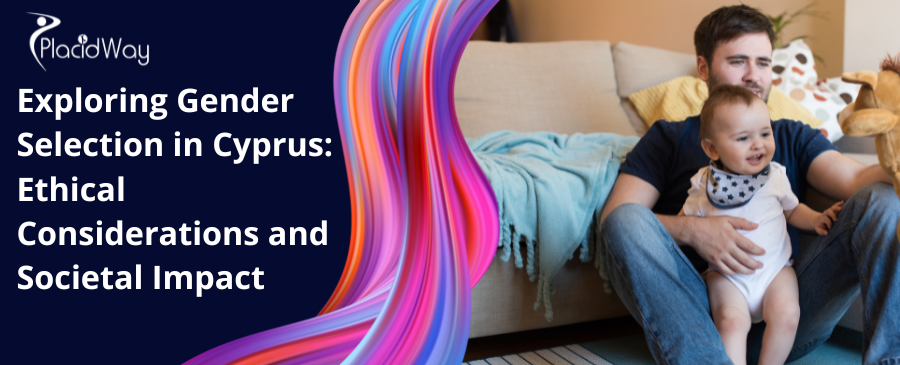Gender Selection in Cyprus: Ethical and Societal Impacts Explored

Gender selection has become a focal point of ethical, moral, and societal debates across the globe. Cyprus, an island nation in the Eastern Mediterranean, has not been immune to these discussions. This blog post aims to explore the complex landscape of gender selection in Cyprus, delving into the ethical considerations and societal impacts of this practice. We will navigate through the medical, legal, and cultural dimensions to offer a comprehensive understanding accessible to all ages.
Understanding Gender Selection
Gender selection, also known as sex selection, is the practice of using medical techniques to choose the sex of an offspring. The most common method used is Pre-implantation Genetic Diagnosis (PGD), which involves screening embryos for genetic conditions and the desired sex before implantation in the womb. While the primary intent of PGD is to prevent genetic diseases, its use for gender selection has sparked a global debate.
The Cyprus Context
Cyprus is known for its advanced fertility clinics and has become a destination for couples seeking reproductive assistance, including gender selection.
The country’s legal and regulatory framework allows for certain types of gender selection, primarily for medical reasons, such as avoiding sex-linked genetic disorders. However, the use of these technologies for non-medical, family-balancing reasons presents ethical dilemmas and cultural complexities.
Ethical Considerations
The ethical debate around gender selection is multifaceted. It raises questions about the right to choose, the value placed on different genders, and the potential for gender imbalance.
- Right to Choose: Proponents argue that parents should have the autonomy to make reproductive choices, including the sex of their children. This perspective emphasizes personal freedom and reproductive rights.
- Value of Genders: Critics worry that allowing gender selection perpetuates societal biases towards a particular sex, reinforcing gender stereotypes and inequalities. In many cultures, a preference for male offspring can lead to a devaluation of females, affecting their rights and status within society.
- Gender Imbalance: There's a concern that widespread use of gender selection could lead to demographic imbalances. A significant preference for one gender over the other could result in societal and economic challenges, including a skewed sex ratio.
Societal Impact in Cyprus
In Cyprus, the societal impact of gender selection is influenced by cultural, religious, and demographic factors. The practice has stirred discussions on traditional family structures, gender roles, and the future demographic composition of the island.
- Cultural Perspectives: Cypriot society, with its deep-rooted family values, often places emphasis on having children of both genders. Some view gender selection as a means to achieve a balanced family. However, this also opens up conversations about the inherent value of individuals regardless of gender and the need to move beyond traditional expectations.
- Religious Considerations: The dominant religions in Cyprus, including Christianity and Islam, offer varied perspectives on gender selection. Religious leaders and communities have engaged in debates about the moral implications of intervening in the natural process of determining a baby’s sex.
- Demographic Concerns: While Cyprus has not yet faced a significant gender imbalance, the ongoing practice of gender selection raises questions about long-term demographic trends. Authorities and researchers are monitoring the situation closely to ensure that the choices of today do not lead to unintended consequences for future generations.
Moving Forward: Ethical Guidelines and Societal Dialogue
Addressing the ethical considerations and societal impacts of gender selection in Cyprus requires a balanced approach. It involves crafting ethical guidelines that respect reproductive rights while safeguarding against potential societal harms.
- Regulatory Framework: Strengthening the legal and regulatory framework around gender selection to ensure that it's used responsibly. This includes clear guidelines for its use in medical contexts and careful consideration of its application for non-medical reasons.
- Education and Awareness: Enhancing public understanding of gender selection, its ethical implications, and its impact on society. Education can foster a more informed dialogue on the value of gender equality and the importance of diversity within families.
- Cultural Shifts: Encouraging cultural shifts towards valuing individuals equally, regardless of their gender. This involves challenging traditional stereotypes and promoting a society where every child, irrespective of gender, is valued and celebrated.
- International Collaboration: Engaging in international discussions and collaborations to address the global aspects of gender selection. Sharing insights, experiences, and strategies can help countries navigate the ethical complexities of this issue.
The topic of gender selection in Cyprus opens up a Pandora’s box of ethical considerations and societal impacts. As we navigate this complex terrain, it's crucial to balance personal freedoms with the collective good, ensuring that advancements in reproductive technologies do not inadvertently reinforce gender biases or contribute to societal imbalances. By fostering open dialogue, setting ethical guidelines, and promoting gender equality, Cyprus can approach the issue of gender selection with sensitivity and foresight, paving the way for a more inclusive and equitable society.







.png)


.png)
.png)

.png)
